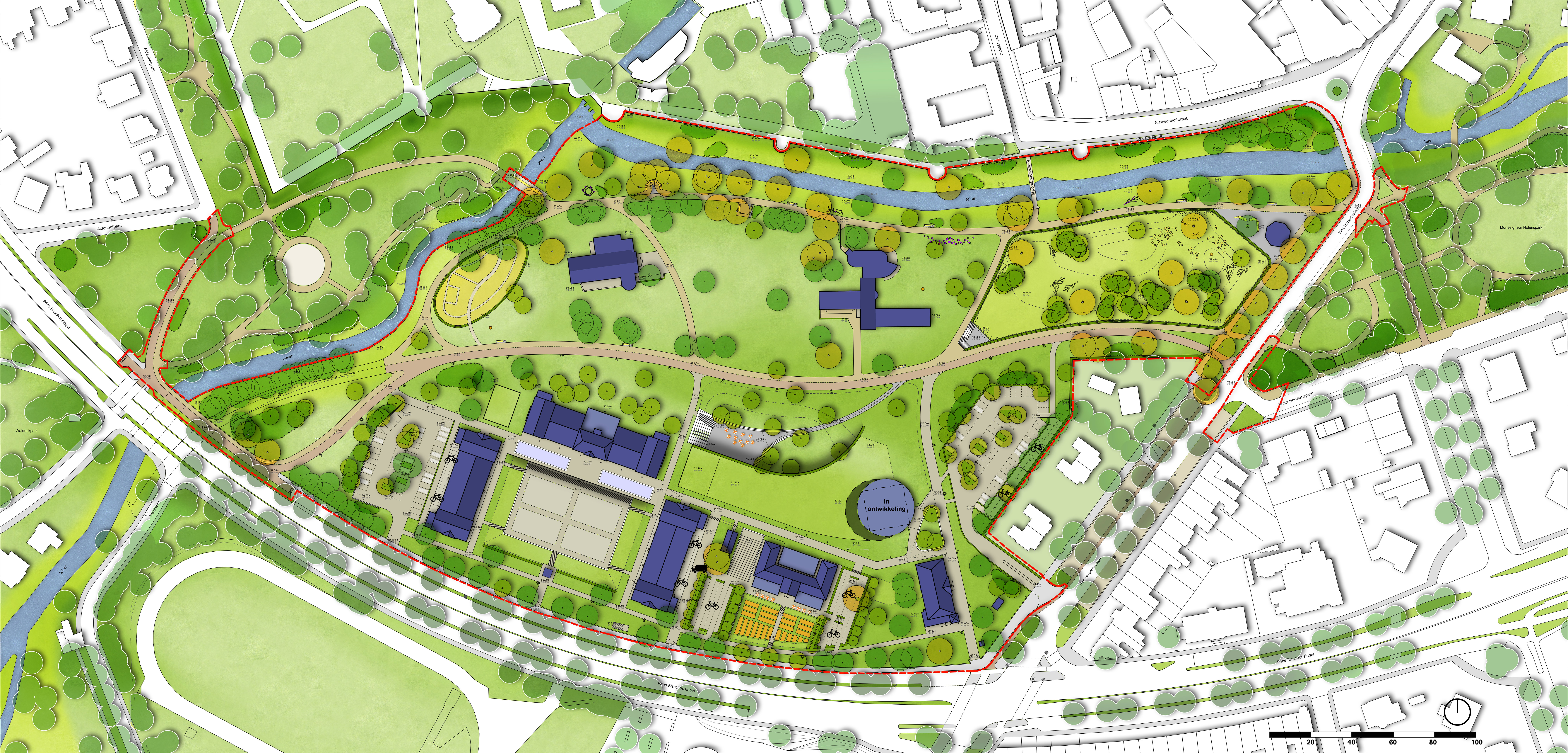Final design Tapijn approved. Let's go!
On 28 June the municipal council of Maastricht has agreed upon the final design of the Tapijnkazerne and has adopted the zoning plan. The project is expected to break ground in mid-2017. The completion is scheduled for 2020.
The non-monumental buildings will be demolished, the monumental buildings will be renovated and used for education, research and other related purposes. There will also be limited new construction. In the public park there will be bike and hiking trails, the Tapijn garden and the petting zoo will be refurbished. There will also be lots of space for ecology and activities. By then Tapijn must be the meeting place for the university and the city of Maastricht.
Background
In the last few months the municipality of Maastricht has organized several sessions for interested parties. After every session the draft design has been adapted. On 14 June the last session took place and the final draft was presented. This draft, which the municipal council of Maastricht agreed upon, optimally adapts to the needs of the residents and users.
The former military barracks have been officially owned by Maastricht University, the Province of Limburg and the Municipality of Maastricht since October 2013. The university and the province are the mutual owners of the buildings, and the municipality of the undeveloped terrain.

Also read
-
Why some people hesitate to vaccinate and how healthcare can address this
Doubts about vaccination continue to be a significant challenge for global public health. The World Health Organisation (WHO) has listed vaccine hesitancy as one of the top ten threats to global health. But what exactly is vaccine hesitancy and how does it impact our society? How can we address it...
-
New technique measures live activity of gut bacteria
Professor Ellen Blaak, PhD Gilian Larik and research team are tracking in MRUM fermentation chambers, how gut bacteria respond to food.
-
GROW research: all-in-one test for genetic defects in embryos🧪
Researchers at Maastricht UMC+ and GROW have developed a technique that can analyse the entire genome in a single test, allowing for faster determination of embryos suitable for successful pregnancy.